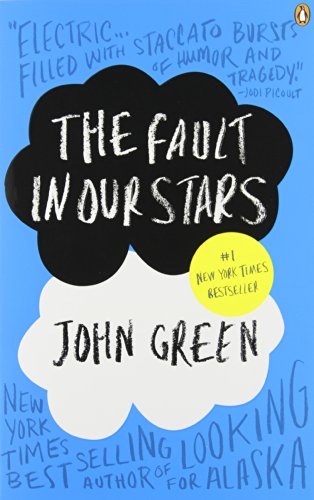The Fault In Our Stars
by John Green
So I dug right down to the bottom of my soul
To see how an ice cream felt…
Another book that every teenage girl you know has read, The Fault In Our Stars seems to be a story of two kids with cancer, but it's deeply interested in the the interaction between life and the stories we tell about it.
A boy and a girl meet cute at a 12-step group for childhood cancer – itself a nicely-observed absurdity – and, one thing leading to another, they soon find themselves sharing an intense passion for a little-known novel about a kid with cancer. That novel ends abruptly and no sequel has appeared; our star-crossed readers accept that the protagonist succumbed suddenly but they want very much to know what happened to The Mother, whether her Boyfriend was good or bad, and what became of her pet hamster Sisyphus. They get in touch with the author, but he won’t commit the answers to writing. He might tell, if only we were in Amsterdam. So, two very sick kids need to get to Amsterdam.
This is done quite well. Of course, you don’t need to address these questions through the eyes of a 15-year-old with terminal lung cancer and her first boyfriend, but that’s part of the point: plot happens.
So, much of the book is an interesting concurrence to David Mamet’s attack on Method Acting: you don’t need to deeply understand the character’s background, because the character is a character and has no background. Nothing that’s not on the page exists; that’s all you know and if you need to know more than that, you’re screwed. (And you’re screwed in any case, thanks to the whole mortality thing.)
I think the book, like the internal story, might to have ended right there. Instead, Green resolves everything with a maudlin coda that shows us what we’ve already been told, and which tends to recast the literary concerns as a distracting subplot in the middle of a sentimental tale of illness.
